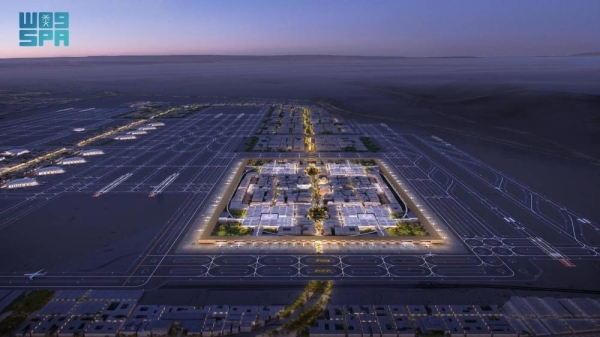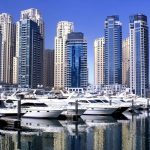The King Salman International Airport Development Company (KSIADC), a subsidiary of the Public Investment Fund (PIF), has partnered with four industry-leading firms to transform King Salman International Airport (KSIA) into a premier global hub for tourism, trade, and transportation. Foster + Partners has been appointed to design the airport’s master plan, covering 57 square kilometers with multiple terminals, six runways, and a multi-use real estate area reflecting the cultural essence of Riyadh. Global engineering powerhouse Jacobs will assist with the detailed design of the new runways, while Mace will provide construction management expertise, and Nera will oversee the design of the airport’s airspace.
Acting CEO of KSIADC, Marco Mejia, highlighted the significance of these partnerships in creating an airport that sets a new benchmark in global aviation. The project aims to meet Riyadh’s connectivity needs and drive business, trade, and tourism objectives outlined in Vision 2030. The development of KSIA will play a pivotal role in positioning Riyadh as a key international travel destination, offering a seamless and innovative experience for global travelers. The airport’s master plan, unveiled in November 2022 by Crown Prince Mohammed bin Salman, aligns with the broader goals of Saudi Vision 2030, aiming to boost economic growth and diversify the Kingdom’s economy.
The strategic partnerships with industry-leading firms, including Foster + Partners, Jacobs, Mace, and Nera, are crucial in ensuring the success of the King Salman International Airport development project. Foster + Partners will design the airport’s master plan, covering a vast area of 57 square kilometers with multiple terminals, runways, and a real estate area reflecting Riyadh’s cultural essence. Jacobs will provide expertise in detailed runway design and master plan consultancy, while Mace will implement advanced planning and construction methodologies to meet the project’s high standards. Nera, a Saudi company specializing in air traffic management solutions, will oversee the design of the airport’s airspace using cutting-edge technology to enhance operational efficiency.
In a statement, Marco Mejia emphasized the commitment to creating an airport that sets a new benchmark in global aviation and meets Riyadh’s connectivity needs. The strategic partnerships with Foster + Partners, Jacobs, Mace, and Nera are crucial in driving the business, trade, and tourism objectives outlined in Vision 2030. The development of KSIA is set to transform Riyadh into a key international travel destination, offering a seamless and innovative experience for global travelers. The airport’s master plan, aligned with Saudi Vision 2030’s goals, aims to boost economic growth and diversify the Kingdom’s economy.
With the development of King Salman International Airport, Riyadh is set to position itself as a key international travel destination, offering a seamless and innovative experience for global travelers. The airport’s master plan, designed by Foster + Partners and supported by Jacobs, Mace, and Nera, reflects Riyadh’s cultural essence and aligns with the broader goals of Saudi Vision 2030. Marco Mejia’s emphasis on creating an airport that sets a new benchmark in global aviation underscores the importance of these strategic partnerships in meeting Riyadh’s connectivity needs and driving business, trade, and tourism objectives. The project is crucial in boosting economic growth and diversifying the Kingdom’s economy, in line with Vision 2030’s objectives outlined by Crown Prince Mohammed bin Salman.
Overall, the strategic partnerships with industry-leading firms and the development of King Salman International Airport are key steps in transforming Riyadh into a premier global hub for tourism, trade, and transportation. The airport’s master plan, designed by Foster + Partners and supported by Jacobs, Mace, and Nera, aims to offer an authentic Saudi experience for travelers, reflecting Riyadh’s cultural essence. The project is aligned with the broader goals of Saudi Vision 2030, focusing on economic growth and diversification. By meeting Riyadh’s connectivity needs and driving business, trade, and tourism objectives, the development of KSIA is set to play a pivotal role in positioning Riyadh as a key international travel destination.










